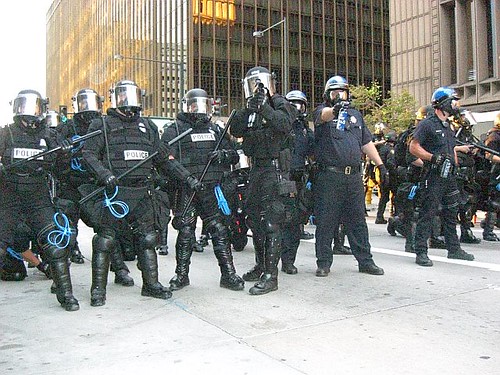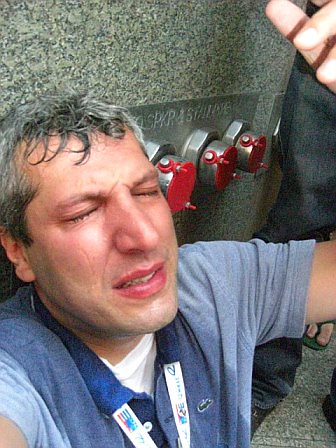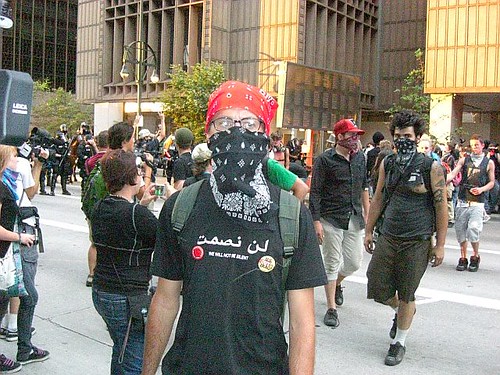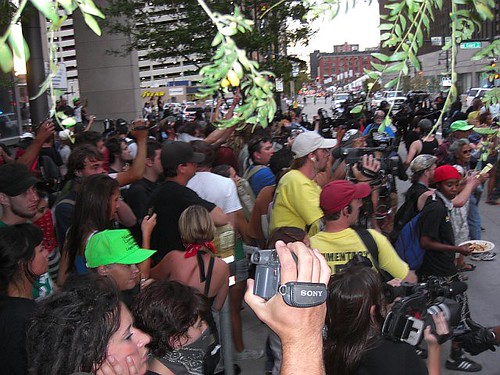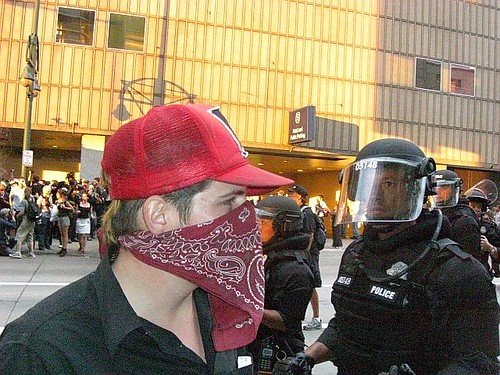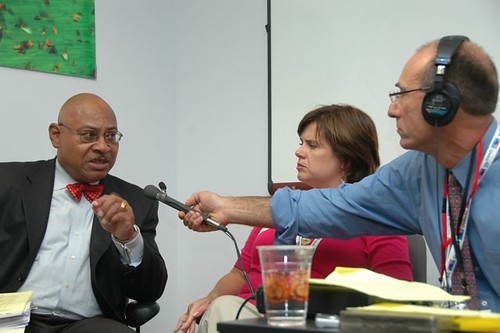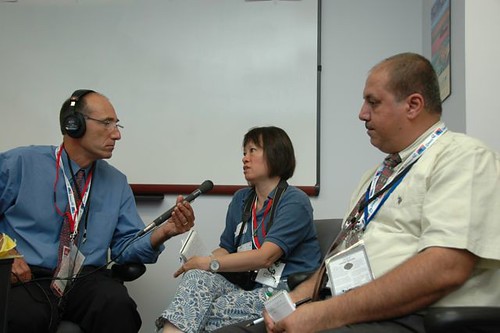What If They Held A Convention And Nobody Came?
Lotus Chau, the chief reporter at Sing Tao Daily, woke up in St. Paul, Minnesota on the first day of the Republican National Convention, glanced at the TV screen, and saw CNN’s Anderson Cooper in a rain slicker, his body pressed against the wind, reporting live from the hurricane-ravaged Gulf Coast. “What’s he doing there?” she asked, “he’s supposed to be here.” Chau is part of a group of ethnic media journalists from New York who are in the Twin Cities to cover the Republican National Convention. So far there isn’t much to cover. While Cooper and a number of other network news stars have quickly shifted their focus and their considerable resources to the impact of Hurricane Gustav, reporters for ethnic media, on limited budgets, are in St. Paul waiting for the start of a convention that has yet to get off the ground.
There is no question that John McCain’s announcement on Sunday suspending all but the legally-required convention activities has had a major impact. So have the decisions by President Bush and Vice President Cheney to skip the convention. But there’s more to it. On this first day, it looks like Minneapolis and St. Paul are hosting a non-convention (not the UnConvention, since that’s the name of a series of alternative events being held in the Twin Cities to coincide with the RNC). In contrast to downtown Denver, which on the first day of the Democratic National Convention last week was buzzing with delegates, demonstrators and security officials, downtown Minneapolis this morning looked like a ghost town. To be fair, it is Labor Day, but even so it looked like they had rolled up the sidewalks.
On University Avenue in St. Paul, just a few miles from the the Xcel Energy Center where the RNC is scheduled to be held, the only evidence of political activity was a hand-lettered sign held up by an anti-war demonstrator on his way to the state capitol for a rally. The sign said “McCain is a War Whore.” There were no “McCain for President” signs to be seen on any of the local streets. A Walgreens drug store had no GOP souvenirs for sale. “No they didn’t send us any,” replied a clerk when asked why the shelves were bare of McCain swag. The only specialty items in the store were Halloween costumes. In Denver Barack Obama t-shirts, hats and pins were sold on many street corners and in convenience stores. Two days after the DNC sales continued at a brisk pace.
Shortly after John McCain announced the pared-down convention schedule, Anne Mazone a delegate from Navasota, Texas expressed optimism about the impact of the convention on the fall campaign. “Oh honey, when we come out of here we’ll have so much momentum it’ll be scary,” she said. But now the attention of the national press has been diverted from the Republicans and their convention, at a time when the GOP was hoping for all the free media that a convention normally affords.
In the meantime ethnic media reporters who are here to cover what’s happening in St. Paul are scrambling for material. With a lack of events to cover, they are interviewing each other. It remains to be seen how Bangladeshi newspaper readers will react to the political analysis of Russian and US journalists who have been quoted by a Bangladeshi reporter who needs to fill columns in the paper he works for, but is located many miles from the eye of the storm.


